|
Covid-19 related tax relief provided to employers now could have a big impact on small businesses.
Under the new legislation all employers can take advantage of delaying employer payroll taxes, like Social Security, to give them more liquidity and operating income. Here’s how it works: Catch-up payments for those who defer paying those taxes will require 50 percent of the deferred taxes to be paid by Jan. 1, 2021. The balance will be due by Jan. 1, 2022. “Nobody is talking about this, and it can make a difference,” said Neil Bradley, executive vice president and chief policy officer at the U.S. Chamber of Commerce in Washington D.C. But for those who will have loan forgiveness under the CARES Act Paycheck Protection Program or other loan forgiveness initiatives, payroll tax delays do not apply. Other tax changes benefiting employers impacted by Covid-19 may be found on the U.S. Chamber of Commerce website at www.uschamber.com. Employee retention credits, along with incentives to retain employees or hire back employees laid off because of Covid-19 hardships since February 15, aim to keep workers on the books. Participation in these programs ultimately will require “…some deep soul searching by the business owner,” said Danielle Bodnar, UBCC executive director. To better understand its provisions, the CARES Act has been rolled out in stages. Here’s what’s been done so far, and what might be coming next. Bradley said the CARE Act Phase I provided federal investment and infrastructure for the CDC (Centers for Disease Control and Prevention) and health care function, including free [Covid-19], regardless of an individual’s current health care coverage. Phase 2 expanded the Family Medical Leave Act (FMLA) to cover those who become sick, are caring for sick family members, or who must remain at home to care for children due to Covid-19 closures of schools and day care centers. “It is one of the rare times we have had a fully funded mandate. It’s 100 percent repaid,” Bradley explained. Phase 3 deals with automatic payments of $1,200 for adults. Families with minor children will receive $500 per child. Phase 3 provides expanded unemployment benefits of $600 per week, and a 13-week extension of benefits on top of state unemployment benefits. Under the act, small business owners, sole proprietors, contract employees (form 1099 workers), gig and freelancer workers are covered. No timeline for when the UC application process opens to the new sectors covered has been set. Benefits must be applied for through the state unemployment compensation website. Phase 3 also includes the Paycheck Protection Program (PPP) offered through the CARES Act. It is intended to recover lost income due to the coronavirus and to keep employees on the payroll. A potential Phase 4 of the package is currently in discussion to fill gaps Phase 3 did not address, Bradley said. He noted a possible Phase 4 rollout could include relief and financial resources to 501 C 6 non-profit organizations, like chambers of commerce and state and municipal governments who are also employers. “We know state and local tax revenues have fallen off a cliff,” Bradley said. Relief for companies funded through venture capital was also being explored, he said. Bradley said government officials are keenly aware of marketplace concerns over how quickly relief money from the Paycheck Protection Program, Small Business Administration or expanded unemployment can get into the hands of those who need it. “PPP was design in a period where we thought this [Covid-19] would be over sooner. There is no guaranteed deadline for this,” he said. Bradley conceded there are limits to what banks can lend, and federal agencies are working to expand the number of lenders who can participate in the programs. The Small Business Economic Injury Disaster Loan (EIDL), opens for applications to small businesses and sole proprietors on April 10. EIDL provides $10,000 of grant relief, which means it is not paid back. Low interest EIDL loans must be repaid in two years from receipt of funds. EIDL applications are made through the U.S. Treasury website. Sonia Smith urges anyone on the fence about applying for an EIDL loan to do it anyway. “If you receive a loan you have until the end of the year to decide if you want to take the funds,” she said. Smith is an economic development specialist at the U.S. Small Business Administration in Philadelphia. EIDL is designed to pay bills during Covid-19 – like business mortgages, or purchasing necessary supplies or equipment to keep the business at pre February 15 levels. It is not designed to cover lost sales or income, or to fund business expansions, she said. “Make sure to keep detailed records for how any money received [under any federal relief programs] is spent,” in case proof is requested by the government after disbursements are made, Smith said. Bradley said employers could find lending and program resources and details about applying on the SBA and U.S. Treasury websites. Details and updated information may be found on the U.S. Chamber of Commerce website at www.uschamber.com.
Do you have a rapid response plan? Is your business on hiatus? Are your employees at risk?
With so many businesses closed due to the novel coronavirus, or Covid-19 pandemic, alongside uncertainty about when it will end and how quickly recovery will begin, there are steps business owners can take to protect their workforce, customers, and to be better prepared for whatever the future may hold. “One of the ways you protect your business is by protecting your employees and your patrons,” said Jonathan A. Segal, attorney, partner and managing principal at Duane Morris LLP, a law firm in Philadelphia. Segal joined the first PA Chamber webinar held March 19th to address the pandemic and offer tips surrounding legal issues, employment law and employer’s responsibilities. He said employees who feel valued are also those who likely would remain loyal after the pandemic and restriction tide turns, helping businesses return to normal operations. “Things are changing as we speak. As employers we need to have a rapid response team [RRT] which is critical to the key functioning of a business during this time,” Segal said. The critical function of an RRT is to respond to reports or disclosures such as a Covid-19 diagnosis, keep a communication pipeline open, and provide employees with resources. A company human resources manager or HR key employee, as well as a health care employee should be part of the RRT, Segal said. He said policies should be as simple and general as possible, to make employees feel comfortable in coming forward to report issues. “If an employee reports having a diagnosis or close contact or suspected contact it is important to have that RRT in place,” Segal said. He said avoid using language that might not be accurate or worse, cause legal problems later. Unless the business is completely shutting down, don’t use phrases like “an abundance of caution,” he explained. “Avoid absolutes and be prepared to make exceptions to circumstances,” Segal said. He recommended following up conversations, in person or over the phone, with email to provide a written document trail, just in case one would be needed later. If employers are allowing work from home or remote situations, hourly worker’s pay and reporting need to be handled differently from those who are exempt or salaried employees. It’s important to follow state employment wage and hour rules, too. He said some areas meant to protect workers and their income, such as worker’s compensation and the Family and Medical Leave Act of 1993 expansion are new territories. The FMLA entitles eligible employees of covered companies to take unpaid leave to care for family members. A Forbes.com article reported The Responsibility for Workers and Family Act was still in the U.S. legislature, and aims to provide relief during the current pandemic. It addresses debt collection, and small business loans, unemployment, Medicare, Medicaid and private insurance, housing and student loans among other key factors of daily life. In the end, Segal stressed the importance of remaining in touch with employees and providing them support, especially regarding mental health. “How are people doing? How are we keeping a sense of normalcy? People want to talk about things other than Covid-19,” Segal said. “This is not a one-size-fits-all situation. At the end of the day, we are all human beings,” he said. UBCC is committed to providing support to our members and future members by sharing resources and establishing new initiatives with the Upper Bucks community. Each week we will share articles and information to assist our businesses navigating these unpredictable times. Now more than ever, UBCC is here to be your voice, represent our businesses, sustain business and be a part of the robust plan for recovery. PA Chamber of Business and Industry in Harrisburg plans to host weekly online webinars to address the volatile conditions caused by the Covid-19 and offer viewers practical, expertly curated steps to weather the current public health crisis. Upper Bucks Chamber members may participate free of charge. Registration is required. Visit https://www.pachamber.org/ for more information. “Monumental” change to career and technical education could tip the scales for workforce development3/10/2020
Pennsylvania’s officials and educators hope Act 76-2019, a radical overhaul of the commonwealth’s career and technical education laws will reinvent how young people prepare for the workforce.
The new legislation signed into law by Gov. Tom Wolf in October 2019, promises equal access to manufacturing and industry employers at high school college and career events and will provide a centralized database for resources, jobs, training, industry trends, and income predictions anticipated to roll out in June. “This [includes] the most significant law changes in over 30 years,” said Rep. Craig Staats (R-Bucks). Staats sponsored the new legislation in an effort to “…address the mounting college debt crisis.” He serves Pennsylvania’s 145th Legislative District, which covers Upper Bucks County. For years the single biggest problem in manufacturing has been talent, according to Jack Pfunder, a retired manufacturing professional and founder of Pfunder Consulting Group, LLC. He said because schools and employers aren’t accustomed to having direct relationships, organizations like the Upper Bucks Chamber of Commerce are in a unique position to bridge the gap. “Somebody needs to be in the middle,” he said. According to a Forbes report, American young adults shouldered a crushing $1.5 trillion in student loan debt in 2019, the highest student debt number ever recorded, ranking second behind home mortgage debt in the U.S. (https://www.forbes.com/sites/zackfriedman/2019/02/25/student-loan-debt-statistics-2019/#7e60362c133f) “Companies are desperate for good employees and they want to get into the high schools and the middle schools to help educate [youngsters] about what jobs look like,” Pfunder explained. Pfunder conceded lingering, and negative images still surround career and technical education and trade jobs, known in previous decades as vocational school or vo-tech. But high tech manufacturing, including precision medical device machining, CNC technology, and tool-making, aim to dispel the “old-school perception” of dirty shop floors and dull daily work. New jobs and emerging industries demand STEM (science, technology, engineering and math) skills. Qualified employees are rewarded with great pay and career advancement, often without college degree requirements. “Companies will hire right out of high school, [whereas] ten years ago they wouldn’t,” Pfunder said. Pfunder said chambers of commerce are a natural fit to bridge the gap between industry, government and educators. Established relationships between chambers of commerce, educators and business members can help facilitate critical connections in making necessary introductions. “The chamber can easily be that conduit,” Pfunder said. Students at Upper Bucks County Technical School (UBCTS) know first-hand the importance of building industry relationships. From nationwide competitions to daily hands-on training in agriculture, health care and hospitality sectors, students have opportunities to meet employers and see what the future looks like. Thane Goetz, a UBCTS sophomore studying CNC machining from Quakertown, said his robust involvement with SkillsUSA has been eye-opening. “We do fundraising, learn professional skills [like] job interviewing, and [participate in] charity events,” Goetz explained. UBCTS serves students in Palisades, Pennridge and Quakertown. Goetz said UBCTS models its process to “replicate” SkillsUSA district competition formats so students are immediately prepared to compete against their peers in district, region and all state competitions, with the goal of going to nationals. SkillsUSA is a non-profit organization serving roughly 395,000 students in career and technical education across the United States. “We’re the only school that follows the SkillsUSA model” to prepare for competition, Goetz said. The Upper Bucks Chamber celebrated this monumental legislation at the Upper Bucks County Technical School with Rep. Craig Staats for a ceremonial signing of his Act 76-2019 legislation. UBCC continues to be the conduit and bridge for education and industry, ensuring opportunities for our future workforce, and answering the call of our employers for a prepared workforce. If your business is interested in joining the UBCC workforce initiative, please contact Danielle Bodnar 215-536-3211. Robert “Bob” Wieand loved life. He saw every movie, ate at every restaurant, and played every golf course, said David W. Freeman, QNB Bank president and CEO.
If you knew Bob Wieand you knew this “people person” made a big impact on the lives of others. Whether he was arranging a loan package, or getting to know his customers’ goals and dreams, Wieand was instrumental to many successful businesses in Upper Bucks County, and beyond. The long-time resident and commercial lender gave a lifetime of service to the community and will be honored on March 3. “We refer to our commercial lenders as relationship managers. Bob epitomized this title. His customers never left [him] and always gave him referrals. Even with a large portfolio under his management, Bob consistently brought in the most new business every year,” said QNB Bank President and CEO David W. Freeman. Wieand passed away in 2017, shortly after retiring from QNB Bank at the age of 70. He began a career in banking as a teller at the former Bucks County Bank Quakertown location, and he retired from QNB Bank as its senior vice president of commercial lending. For the first time in its more than 140-year history, QNB Bank is naming a conference room in honor of someone who never served as bank president. QNB Bank opened its doors in 1877, and during that time has had only seven bank presidents...“which is amazing,” said Scott G. Orzehoski, QNB Bank executive vice president and chief lending officer. With the addition of two new conference rooms at its Quakertown Towne Bank Center, Orzehoski said naming one of them the Wieand Conference Room was a unanimous decision. The new multipurpose rooms will be used for training, customer meetings and visual presentations. Brian Rocca, owner and president of Eastern Surfaces, Inc. in Allentown, Lehigh County, was a long-time client of Wieand’s. Rocca said after their first meeting, he knew he’d found a banker for his team, who was as excited about his success as Rocca was. “Bob shared an entrepreneur’s spirit and really took pleasure in helping businesses grow. Bob was always there whenever I needed [him], offering advice and always encouraging and helpful,” Rocca said. Orzehoski said when Wieand first joined QNB Bank “it was a very small community bank, and he was the catalyst that started a culture of commercial and industrial lending.” And Wieand took a holistic approach to business and commercial lending. He realized business owners had personal loan needs, too. “[From] the personal side of a business owner to home, car or college loans, he developed a complete relationship. He was the quintessential community banker,” Orzehoski explained. Anthony Cilio grew up knowing Wieand because Cilio’s father was a long-time client. Today Cilio is executive vice president of Alfresco Home in Pottstown. The company provides design services, imports and distributes outdoor living products. During the 1970s, “I was a youngster and then became more involved in the businesses. Wieand initially worked with my father. I remember him coming by often, checking in, and that he was approachable. He took an interest in the business and was always willing to help, and I think that was one of his greatest qualities,” Cilio explained. Orzehoski said Wieand was more than a salesman or problem solver – he instinctively knew how to help clients grow their businesses because he was creative, collaborative, visionary and an “outside of the box” thinker. His understanding of credit and borrowing, and the vital impact those tools provided to his clients, made Wieand’s work “consultative.” “He recommended loans for a type of business structure clients needed. He’d meet with customers and remind them to think about and plan for their business needs and expansion,” Orzehoski said. Helping clients feel heard and understood were qualities Wieand possessed, too, and his clients knew he was on their side. “You always came away from meetings feeling he was your partner in structuring and coordinating loans with QNB Bank. You always felt … that he cared…and wanted to see you succeed in business,” said Terry L. Sands, president of Sands Auto Group. Rocky Wright, founder and president of Wright Flooring Company Inc. in Silverdale, said his relationship with Wieand stretched back to the Bucks County Bank years, and it continued when Wieand moved to QNB Bank. “I was brand new in business with a mortgage and three little kids to feed. I think Bob took a look at me and saw more positive than other bankers would have seen. Bob had the foresight to see what my potential of growth was. He dealt with the person, not the entity,” Wright said. James Loew, controller of Wehrung’s Lumber & Home Center, Inc., and M&W Precast, LLC, both in Ottsville, said Wieand viewed customers as friends, for whom he genuinely cared for. “Bob was the most generous and kind-hearted person I knew. People, they weren’t just customers to him,” Loew said. The Upper Bucks Chamber was no stranger to Bob’s work ethic, compassion and generosity. Bob served on the board of directors for many years and was President of the Chamber in 1989 and a chairman for the golf committee for 25 years. The UBCC honored his volunteerism and service by presenting him with the Chamber Service Award in 2004. The Chamber is honored to celebrate the life and the legacy of Bob Wieand. The Wieand Conference Room naming will coincide with the Upper Bucks Chamber’s March business networking event. This event will be held on Tuesday, March 3rd from 4:30 to 6:30 p.m. at the QNB Bank Towne Center, 320 West Broad Street, Quakertown. Click on the link to register for the ceremony and networking event - https://web.ubcc.org/events/Business-Card-Exchange-Hosted-by-QNB-1305/details. In the spirit of its founding in 1954 Upper Bucks Chamber of Commerce welcomes three new members to its board of directors to promote the region’s economic vitality.
From lenders to lawyers, educators, entrepreneurs and health care professionals, business leaders volunteer their time, talent and treasure to further the region’s business, retail and commercial growth and expansion. "Our region is diverse - from skilled trades, manufacturing, education, health and wellness and our hardworking agriculture roots. As we continue to strengthen our relationships with community partners, we're mindful of how these bonds are integral to everyone's success," said Danielle Bodnar, UBCC executive director. UBCC welcomes Dave Ault, David Nagy and Todd R. Hurley to collaborate at the table of its 19-member board of directors. Ault is owner of Ault Signature Homes in Upper Saucon Township Lehigh County. He said one of UBCC’s biggest strengths is its “membership numbers” and the greater potential for adding new members to its future rolls. “There are a lot of people here and at every event, I see new faces,” Ault said. He considers 2020 a chance to get more involved by attending networking and mixer events and to become more involved with leadership and service opportunities. Nagy is director of marketing and IT management for the Wehrung Family of Businesses in Ottsville. He views chamber participation as a stewardship for the Wehrung organization. A Wehrung employee since 2015, Nagy looks forward to getting more involved with UBCC and learning about the chamber’s outreach initiatives as a new board director. Taking a seat on UBCC’s board of directors offers Nagy a chance to be part of Wehrung’s long-standing commitment to community outreach and service. “Wehrung’s Lumber has long strived to be a great member of the community, and it is an honor that I was selected to represent the company moving forward,” Nagy said. Wehrung’s Founder Woodrow “Woody” Wehrung along with a few small business owners formed the Quakertown Chamber of Commerce in 1954. The organization evolved and was renamed Upper Bucks Chamber of Commerce in 1976. Woody’s grandson Jason Wehrung is among UBCC’s past board presidents, having completed a two-year term as its board leader in 2018. “I look forward to increasing my knowledge [through board membership] about everything the chamber can offer its members,” Nagy explained. And he noted UBCC’s impact is a positive, driving force in the business community. “I have already seen the positive impact [UBCC initiatives] can bring, and I am excited to be a part of that culture,” he explained. Todd R. Hurley is Executive Vice President and Chief Relationship Officer at Penn Community Bank in Perkasie. A 35-year employee with Penn Community, Hurley said meeting new people and providing opportunities through financial service offerings helps others realize their life goals and dreams. Providing financial knowledge and service to others is among Hurley’s daily motivators. “UBCC [membership and participation] provides the opportunity to meet new people and through supporting each other, help our businesses thrive,” Hurley said. As a new board of director, Hurley hopes to meet and get to know a larger number of UBCC members and share what he has learned through the years at Penn Community as a banking and community liaison professional “to help move UBCC into the next decade,” he said. Ault and Nagy said their families are primary motivators in their daily lives and professional successes, too. The need to provide and care for loved ones spills into a broader common goal to strive for the economic health and well-being of the UBCC business community. Ault, who has owned and operated his business since 2006, said it’s important for organizations like UBCC to have a wide spectrum of working and professional backgrounds represented on its board. He believes offering a “working man’s perspective on the economy and where it is going” will be a valuable tool to guide UBCC through 2020 and beyond. Hurley said recruiting and keeping people engaged and actively involved in chamber committees and activities was among its biggest challenges, and a strong foundation and enthusiastic leadership were among its many strengths. Ault said he wants to attend more events this year and get to know more UBCC chamber members better. Click HERE for a full list of the 2020 UBCC Board of Directors. 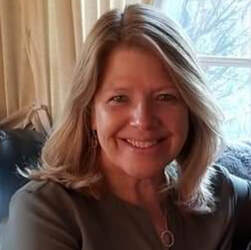 "The most important thing is to try to inspire people so that they can be great in whatever they want to do" - Kobe Bryant "Walk with the dreamers, the believers, the courageous, the cheerful, the planners, the doers, the successful people with their heads in the clouds and their feet on the ground. Let their spirit ignite a fire within you to leave this world better than when you found it." - Wilferd A. Peterson Kathy Ramson begins each day expecting to make a difference, and this Wilferd Peterson quote sums up her inspiration. The new Upper Bucks Chamber of Commerce board president is the network director healthy living and chronic disease initiatives at St. Luke’s University Health Network, and a long-time chamber member. She will serve a one year term as president of UBCC’s 19 member board of directors. A critical care registered nurse and board certified nurse executive, Ramson has been with St. Luke’s since 2000 and holds advanced degrees from the University of Pennsylvania and University of Pittsburgh. About UBCC’s upcoming year, Ramson is enthusiastic. “The stage is set for us to have a successful year with a strong executive director, staff and board of directors. Our board meetings have vibrant discussion with no empty chairs at the table,” she said. Ramson said UBCC’s plans include building membership and resources and forging more partnerships for the business community. “We would like to build representation of non-profit organizations, as well as include our agriculture/farming community,” she said. Ramson said effective leaders are skilled communicators – which mean they’re active listeners, too. “Always find the time to recognize and reward [your colleagues and] ensure you are connecting to your team, and they are connecting to one another,” she said. UBCC membership means St. Luke’s has a ‘seat at the table’ and a way to tap into the needs of the community directly, according to Ramson. “It [membership] has always afforded me the opportunity to meet and partner with amazing business leaders and remarkable, down to earth people, whom I now call friends,” she said. As with any membership organization, Ramson said member recruitment and retention are top priorities in 2020 and beyond. Strengthening the “customer package” to current and future members is one of the ways to ensure UBCC remains vibrant. And UBCC’s biggest strength? “Our business community,” she said. In addition to UBCC programs, downtown business support comes from Quakertown Alive! and the new Nature-Based Placemaking Program in development through Pennsylvania Downtown Center to develop connected trails, create green spaces and attract recreation enthusiasts along with related new businesses. (For more visit our blog archives at https://www.ubcc.org/blog/archives/08-2019.) Top on Ramson’s To Do list in 2020 is expanding membership engagement. “It’s not a question of ‘if’ [a business or individual will] become a UBCC member it is when, and on which committees to serve,” she said. 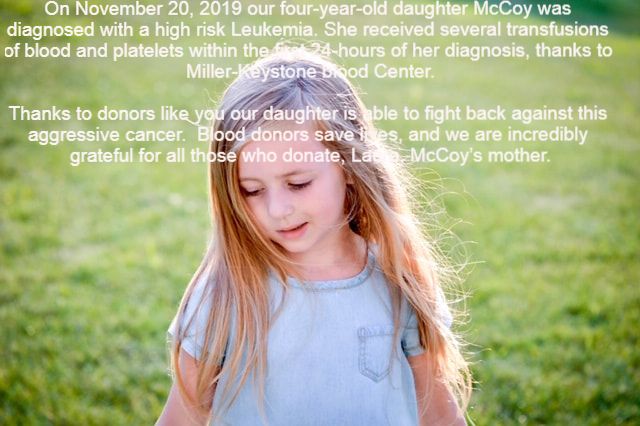 Did you know about every two seconds someone in the United States needs blood? Type 0 is the most requested human blood needed by hospitals, and one car accident victim could need as many as 100 pints of blood. (Source: GiveaPint.org.) Upper Bucks Chamber of Commerce will host its first blood drive from 11 a.m. to 3 p.m., Valentine’s Day, February 14. Carol Graves, Miller-Keystone Blood Center account manager in Bethlehem, said UBCC Executive Director Danielle Bodnar contacted her about arranging the life-saving blood drive in Quakertown. “We thought Valentine’s Day would be the perfect day, from one heart to another, as those transfusions are truly an act of love,” Graves said. And while donors will probably never meet blood product recipients, Miller-Keystone staff do. Miller-Keystone serves 29 hospitals including Lehigh Valley Health Network, St. Luke’s University Health Network, Geisinger Health, Grand View Health and Tower Health locations, among others. Graves said winter months are an essential time for donors. “They (donors) often stay away from blood drives because of bad weather and travel concerns, but the need never takes a holiday,” Graves explained. She said the winter holidays impact collection shortages. This, coupled with higher accident rates, creates a perfect storm of increased need and decreased donations. “Every major holiday is a day we lose 400 to 500 units (Miller-Keystone’s daily collection average) of blood,” Graves said. Graves’s professional background is varied, and she said working at Miller-Keystone is a perfect fit. “I love meeting new people and telling people about the importance of donating blood. Nothing is more exciting to me is when a new group comes on board,” Graves said. It can be challenging the first time a group hosts a blood drive, but the rewards are tremendous. Set a realistic goal; future blood drives will grow. Premature babies – weighing less than four pounds – is the age group using the most blood in the United States. There are 50 preemies born every day in Pennsylvania, Graves said. These tiny patients can use up to four pints of blood before they are discharged from the hospital’s Neonatal Intensive Care Unit (NICU). And cancer is the number one disease group using blood transfusions. “Many cancer patients need blood transfusions during their chemotherapy, to counter the side effects of the chemotherapy,” Graves said. Common blood donation misconceptions: It’s going to hurt. Actually, it won’t. Donating blood is painless. Donors often “kid” one another about the initial finger stick, to determine your current hemoglobin, and that it’s the worst part of the process. That millisecond of discomfort is worth saving three lives. I can’t donate, I’ve had cancer. Most cancer survivors are eligible to donate blood and blood products one year after their last treatment. I have body art and/or piercings, that means I can’t donate. Again, after one year from piercings and tattoos, you may donate blood. Those who are prohibited from donating blood include those on blood thinners like Warfarin or Coumadin, and those with certain heart conditions, check www.GIVEaPINT.org for eligibility. Donors must weigh at least 110 pounds, be at least 16-years-old and have photo a ID. To register for the UBCC blood drive click here https://web.ubcc.org/events/Valentines-Day-Blood-Drive-1282/details. 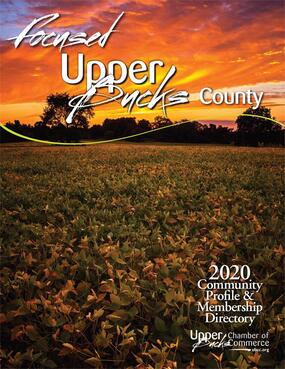 Home is where I always return. My parent’s family home in Sellersville and its surrounding community rooted my love for Bucks County into my college years at Penn State and Happy Valley. Upper Bucks County will always be home for me, from Danielle Bodnar’s welcome letter introducing the 2020 focused Upper Bucks County business directory and community profile. Home. It’s where you put your feet up at the end of a long day and lay your head at bedtime. It’s where you’re most relaxed– during the upcoming holidays or any other – from birthdays and milestones to special celebrations and gatherings. And it’s where you can always be yourself. In our upcoming edition of focused Upper Bucks County, UBCC’s annual business directory and community profile, we pay homage to the places we call home and our rich, good earth. From plow and planting to growing season and harvest, the prominent role our agricultural roots plays is a vital part of the fabric of daily life – from economics to the abundance we’ll enjoy on our holiday feasting tables. In 2020 we take time to honor plow and planting and to give thanks. As the most recent of our quartet of in-house produced publications, we’ve gathered in a crop of hand-curated information you won’t find anywhere else. Where to eat and shop? What’s the economic forecast in the coming year? Where do I find a painter, disaster help after a fire, or an insurance agent or Realtor? Here our membership listings take the guesswork away in selecting contractors, specialty service providers, where to enjoy brunch or see a show because we’ve done the sourcing for you. Considering a legal team? Check out focused. Health care or senior living options? Focused. Higher education choices? You’ll find them in focused. In this issue we explore our historical roots in Perkasie Borough – and how revitalization sown from seed after a catastrophic fire in 1988, has flourished with new housing, new businesses and economic development and how America’s Hometown continues to earn its coveted nick-name. Danielle Bodnar makes her debut as executive director for UBCC in the 2020 edition of focused. “I’m excited to see how our area evolves in the course of a year, and this edition’s photographs showcase our beautiful and welcoming place,” Bodnar said. UBCC’s annual directory and community profile represents not only our membership but the communities in which we live, work, eat, shop, play, learn, discover and grow. Check out the 2020 focused. From long-time native to newcomer, there’s something to learn, inspire and delight on its fresh, new pages. Members receive discounted advertising rates in focused, the region’s premiere publication. For 2020 we’ll print and distribute 7,500 copies throughout Pennridge, Palisades and Quakertown Community school districts. It is also available online at www.ubcc.org/directory. From the new digital sign out front to more mixers, more networking opportunities, more ribbon cuttings, more connections UBCC Executive Director Danielle Bodnar took a look back at her first year at the helm and considers the vision for 2020.
“Danielle is doing a great job increasing the visual presence of the chamber and building many more strong contacts,” said Jason Wehrung, owner of Wehrung’s Lumber and Home Center in Ottsville and Wehrung’s Family of Businesses. He’s also a past president of the UBCC Board of Directors. During 2019 UBCC hosted 11 mixers, signed on 49 new members, held nine ribbon cuttings and hosted three business ground breakings. Bodnar said one of the biggest hurdles early on was making contact with each of the nearly 500 members, meeting and visiting them to learn about their business needs. “After watching her in action over the past year; we all realized that we under estimated what a great fit she would be for the chamber. She is engaging, inclusive and inspirational with a focus on partnerships, communication and accomplishments” said Kathy Ramson, network director healthy living and chronic disease at St. Luke’s University Health Network and 2020 UBCC board president. Bodnar said the continuing success of such signature events as Foodie, golf outing, clay shoot, legislative series, transportation forum and the new employer summit meant these opportunities resonated with the community. “I’m proud of the new events we initiated this year such as the transportation forum, the workforce and employer summit, cash mobs (for retailers) and new initiatives to highlight our chamber members,” Bodnar said. By adding a “people’s choice vote” awards component she brought a Hollywood flare to UBCC’s annual meeting held in November. The warm friendly welcome Bodnar said she received in October 2018 continues. “While I was new to the chamber, I’m not new to Upper Bucks,” said the native of Sellersville and resident of Milford Township, where she makes her home with husband Joe and two children. Bodnar’s mindful that being a chamber member is a conscious choice. “Membership can enhance your business relationships and business culture,” she noted. What’s she’s learned over the past year will drive fine-tuning and new initiatives for 2020. “My top goal is to offer events and programs members feel are relevant, making the chamber something future members feel they can’t live without,” Bodnar explained. From workforce development and helping create a funnel for filling vacant job positions to attracting and retaining employees and highlighting soft skills everyone needs to be successful a business environment, creating partnerships and alliances is key. “The business and education partnership between Upper Bucks County Technical School and our employers is something I’d like to develop more in 2020,” she said. “It’s really about building relationships and trust,” Bodnar said. |
Archives
November 2022
Categories |
| Upper Bucks Chamber of Commerce | ubcc BLOG |
|
Copyright Upper Bucks Chamber of Commerce. All Rights Reserved.
21 N. Main Street | Quakertown, PA 18951 phone: 215.536.3211 | fax: 215.536.7767 | [email protected] | sitemap |
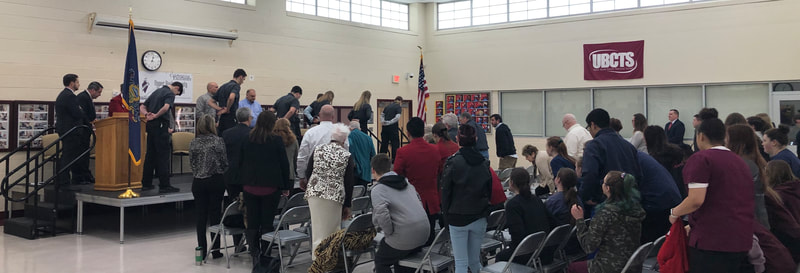


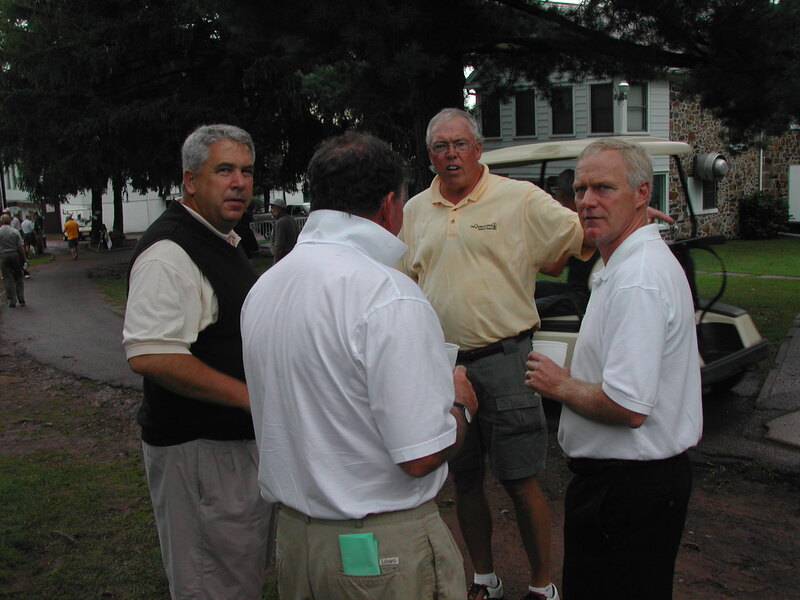
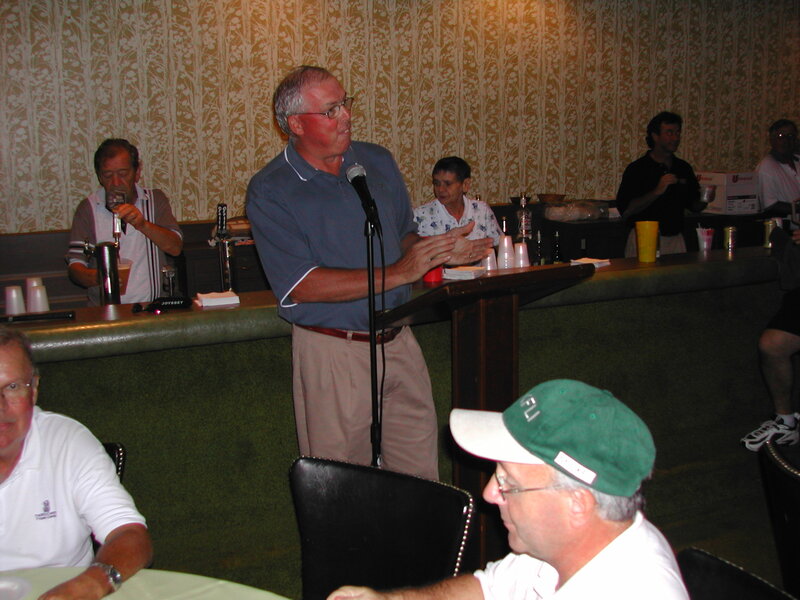
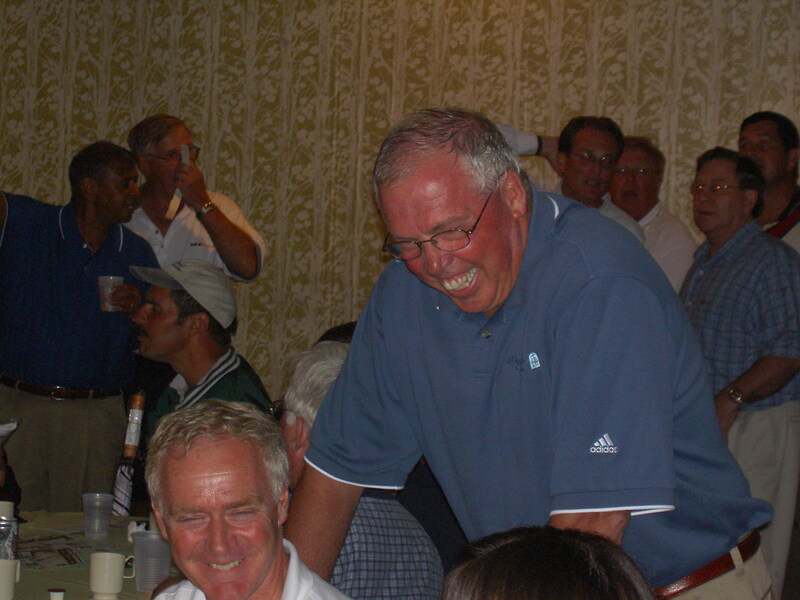
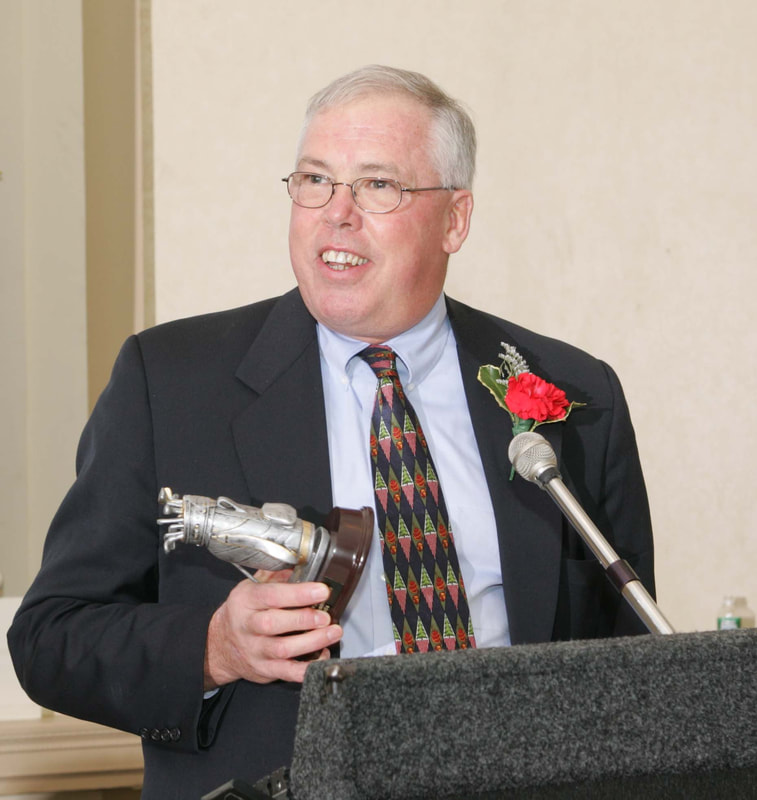
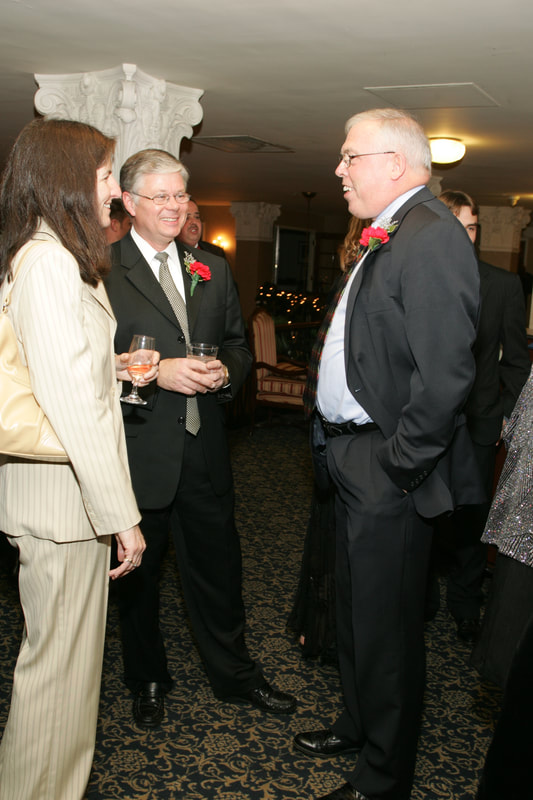
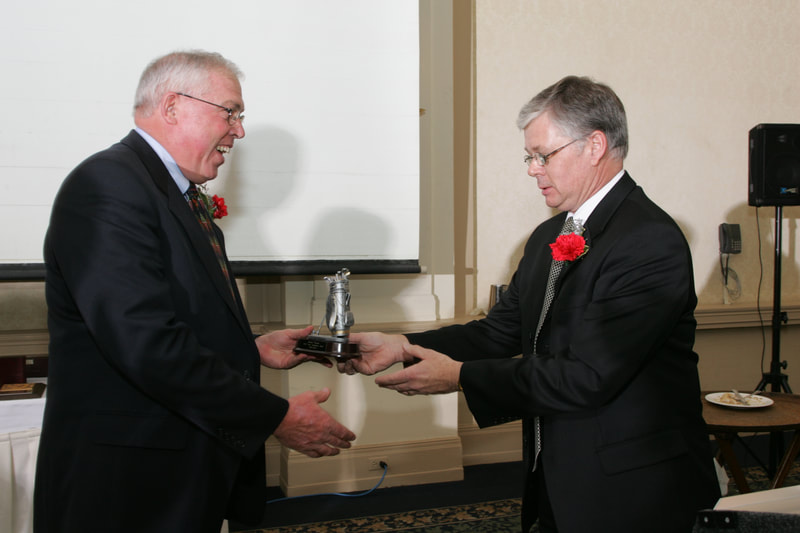
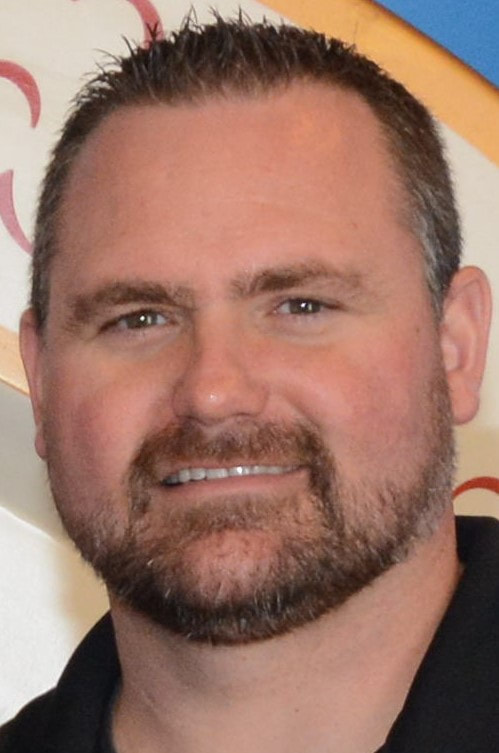
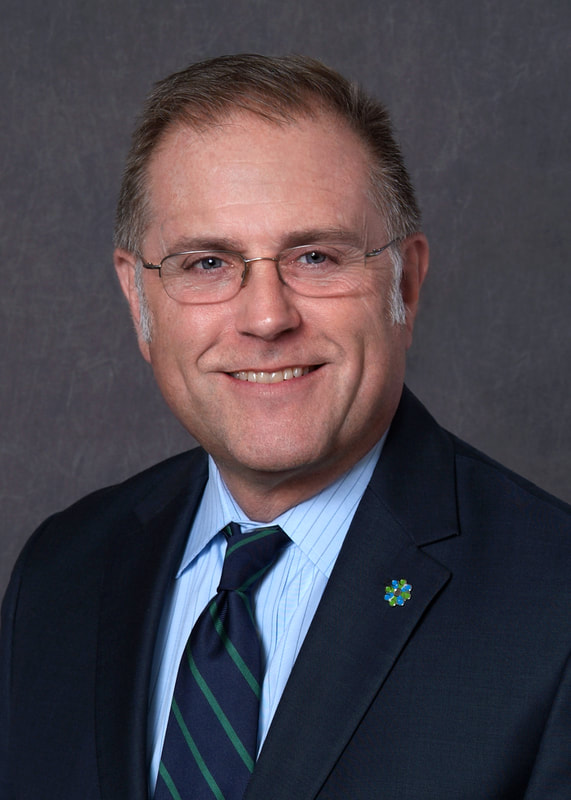
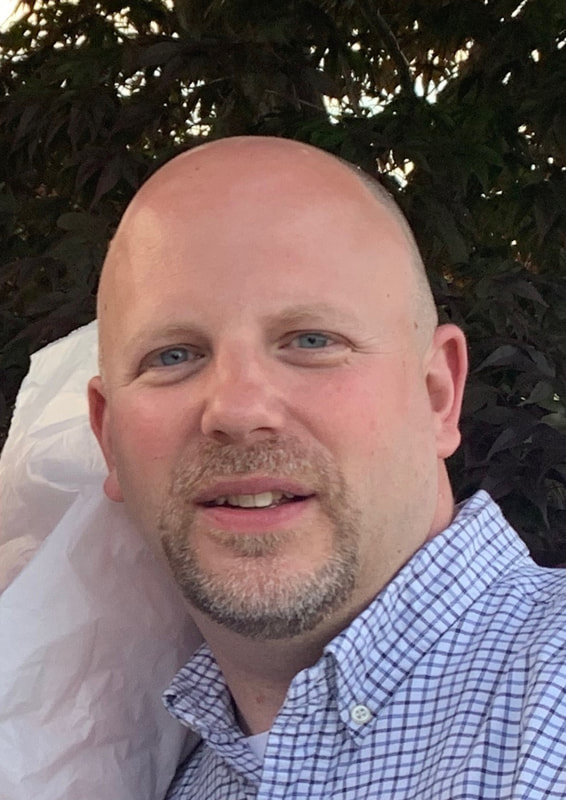
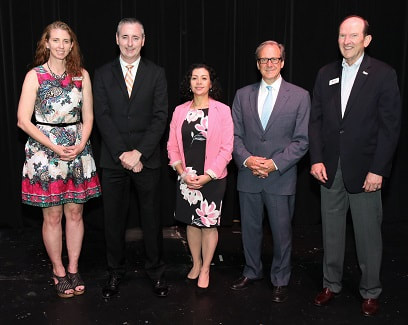
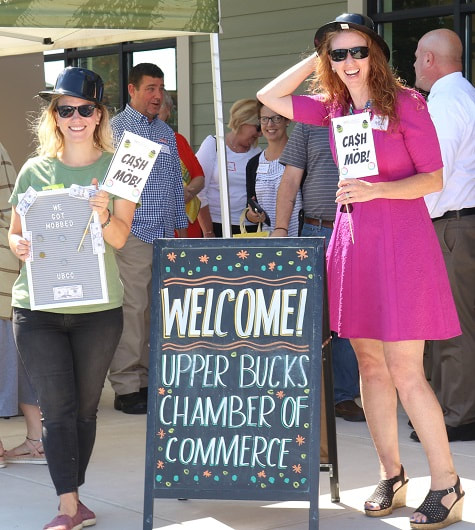

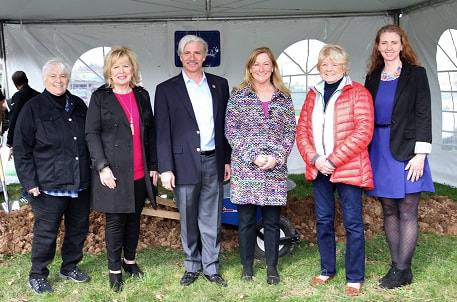
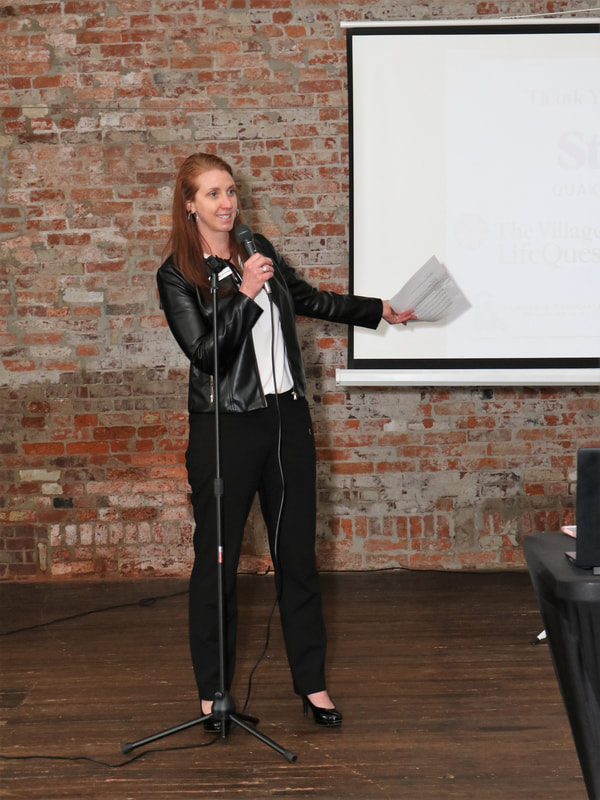
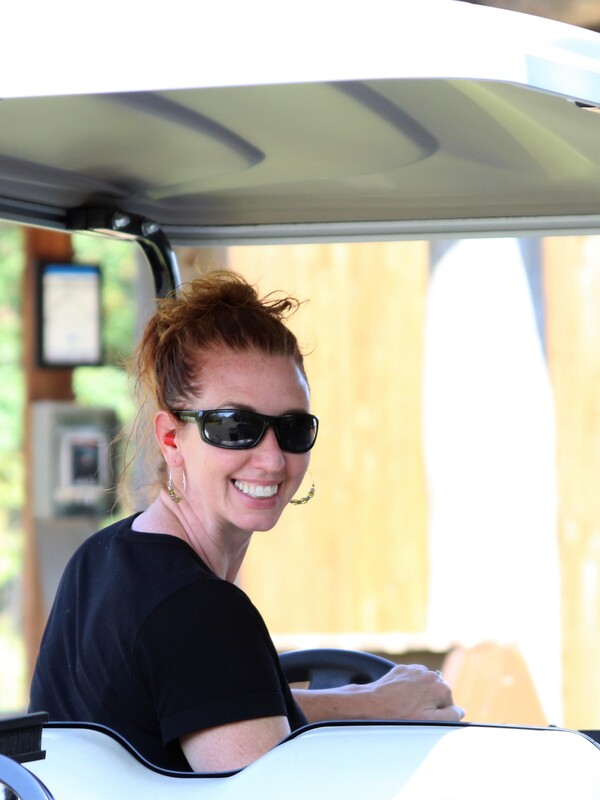
 RSS Feed
RSS Feed
